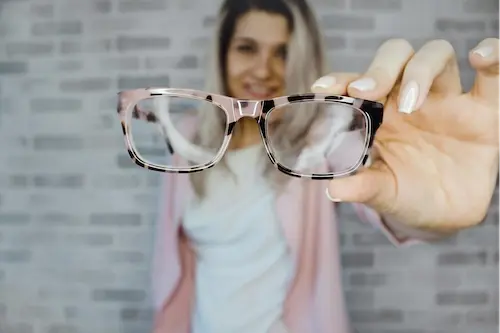How to Choose the Right Glasses for Your Outdoor Lifestyle
Rochester is a beautiful town, full of adventure and ready for you to explore. Don’t let your blurry vision and eye correction prevent you from...
1 min read
 The Rochester Eye & Laser Team
:
Jun 26, 2024 12:23:01 PM
The Rochester Eye & Laser Team
:
Jun 26, 2024 12:23:01 PM


Image from opt magazine 12/5/16 issue
Polarized sunglasses have a long-standing reputation for being a favorite among long-haul drivers, law enforcement officers, boaters, and fishermen who appreciate the glare reduction provided by these specialized lenses. Not only do polarized sunglasses shield your eyes from harmful UV rays that can lead to cataracts and macular degeneration, but they also enhance performance for outdoor enthusiasts by eliminating glare.
In recent years, the demand for polarized sunglasses has surged as more people recognize the advantages of reducing glare and safeguarding their eyes from outdoor UV radiation. Key factors that contribute to outdoor UV risk include:
Factors that contribute to outdoor UV risk include not only location, time of day, altitude, and certain medications that can heighten sensitivity to UV radiation, but also environmental conditions such as snow, sand, and water. These surfaces can reflect and amplify UV rays, increasing the potential for eye damage. It is important to be aware of these additional risk factors and take necessary precautions to protect your eyes from harmful UV radiation.
Despite common misconceptions, cloud cover does not mitigate UV exposure risk. Even on hazy or cloudy days, UV levels can still be alarmingly high as clouds are unable to block invisible UV radiation, although they can obstruct visible light.
The mechanics behind polarized lenses are fascinating. When light hits a flat surface, it becomes polarized and travels in a uniform horizontal direction, leading to annoying glare and reduced visibility. Polarized lenses counteract this by blocking horizontal meridian light while permitting vertical meridian light to pass through, effectively reducing glare from water, highways, and shiny surfaces.
When selecting sunglasses, it is crucial to ensure they block 100% of UV rays and are crafted from quality materials without optical distortions. To guarantee the necessary protection, opt for sunglasses from reputable companies, specialty stores, or optical shops. Remember, factors like lens color, style, price, and country of origin do not impact UV protection; instead, it is determined by the lens material and any additional UV-blocking coatings applied.
With UV damage accumulating over a lifetime, it is especially vital to instill the habit of protecting young eyes from a young age, particularly as children spend significant time outdoors.

Rochester is a beautiful town, full of adventure and ready for you to explore. Don’t let your blurry vision and eye correction prevent you from...

Before we know it, we’ll be trading our winter coats for sunglasses, shorts, and flip-flops. It's crucial to protect our eyes while we're out and...

In Rochester, as we enjoy the long summer days in the sun, it’s wise to consider the way we protect our eyes. High-SPF sunscreen, hats, and UV...